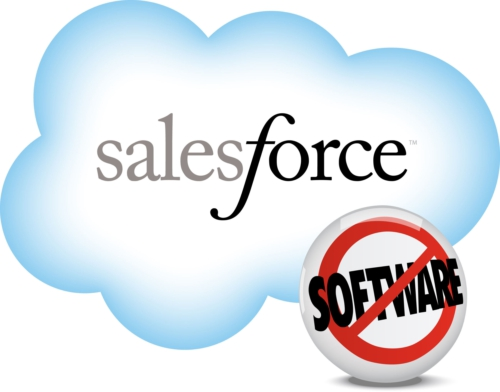Salesforce backs down in the battle for social enterprise


In my work with clients I talk about social collaboration inside the firewall.
I talk about breaking down organisational siloes using collaborative tools such as Cisco WebEx Social, Microsoft’s Unified Communications suite, IBM Connections and Salesforce’s Chatter.
In my world of consultancy, technology and social software my clients refer to 'solutions for the social enterprise'.
Technologists understand my definition of social business, and social enterprise. But are we using the correct terms to describe collaboration and engagement inside and outside of the organisation?
Wikipedia defines social business as having two distinct meanings:
‘A term applied to businesses that have adopted social networking tools and practices for internal and external functions across their organizations’
The main part of the Wikipedia entry focuses mainly on the other definition for social business:
‘A social business is a non-loss, Non-dividend Company designed to address a social objective within the highly regulated marketplace of today.
It is distinct from a non-profit because the business should seek to generate a modest profit but this will be used to expand the company’s reach, improve the product or service or in other ways to subsidise the social mission’.
Trademark issues
It is due to a campaign over the differences in these definitions that has caused Salesforce to withdraw its applications to trademark the term ‘social enterprise’ in the EU, Australia, Jamaica and the US.
Salesforce has also agreed to remove any references to ‘social enterprise’ in its marketing materials after sustained efforts by Social Enterprise UK.
Salesforce has been using the term social enterprise for almost two years and defines Social Enterprise as:
‘Social Enterprise delivers solutions to companies and service to consumers in entirely new ways that are more in line with our new social Web interactions. It elevates communication both within our companies and between companies and their communities of customers, followers, and partners’.
Sustained campaign
On hearing about Salesforce’s application to trademark the term, Social Enterprise UK (SEUK) started an online campaign using the hashtag #Notinourname. CEO of SEUK, Peter Holbrook wrote to Paul Durdik, Director of Intellectual Property at Salesforce.com
Salesforce.com’s CEO and founder Marc Benioff said that the term was created to refer to enterprise software only. In an email to businesses in the philanthropic sector he said:
“I think someone must be confused. Salesforce.com has applied to register the trademark SOCIAL ENTERPRISE in connection with ENTERPRISE SOFTWARE only. It is not seeking to use the phrase SOCIAL ENTERPRISE generally.
Social Enterprise is something that I came up with to describe the next generation of enterprise software---that’s all.’
Climb down
Another letter sent to Benioff and signed by leaders in the social enterprise sector seems to have achieved Salesforce’s about turn. The letter states that:
"Time, energy and resources have been invested into the social enterprise movement, a thriving and a powerful force providing solutions to some of the world's most pressing problems – poverty, inequality, unemployment, disadvantage, climate change and global warming.
"Your organisation’s attempts to take over the term are very damaging to our movement. We ask that Salesforce ceases to use the term ‘social enterprise’ for private profit.
In a statement announcing Salesforce's withdrawal of the application Benioff said:
"It was never our intention to create confusion in the social sector which we have supported since our founding.
As a result of the feedback we received, salesforce.com has decided to withdraw its efforts to trademark the term 'social enterprise' and plans to discontinue its use in our marketing."
The news has delighted supporters of SEUK who have been flooding Twitter with messages of support and congratulations. In response to the withdrawal Holbrook said:
"We are delighted that Salesforce has made this decision and it’s absolutely to its credit that it has taken it publicly, offering an unequivocal statement of its future intentions. We have been impressed by its honesty and integrity. We know that this is no small deed."
Salesforce will now be busy adjusting its slide decks in advance of Dreamforce, its global customer conference in San Francisco on September 18th. However, other companies that refer to their collaborative and social customer activities as the ‘social enterprise’ should take note.
Cease and desist
Social Enterprise UK has now announced that the next stage of the campaign is to:
“Ensure that this respect for the name and the mission of the social enterprise movement holds beyond the Salesforce family. Other tech companies are using the term to describe non-social enterprises and they too must declare their intentions to desist, following the lead of Salesforce.
The social enterprise term is highly valuable and the worldwide social enterprise movement must protect it. We will continue our efforts”.
The naming battle with the tech companies that are selling social collaborative solutions might just have begun.